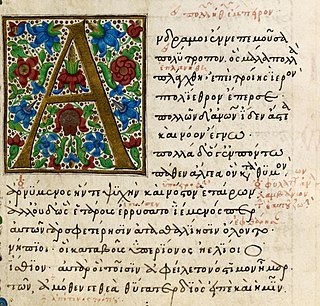
The Odyssey is one of two major ancient Greek epic poems attributed to Homer. It is one of the oldest extant works of literature still widely read by modern audiences. As with the Iliad, the poem is divided into 24 books. It follows the Greek hero Odysseus, king of Ithaca, and his journey home after the Trojan War. After the war, which lasted ten years, his journey lasted for ten additional years, during which time he encountered many perils and all of his crewmates were killed. In his absence, Odysseus was assumed dead, and his wife Penelope and son Telemachus had to contend with a group of unruly suitors who were competing for Penelope's hand in marriage.
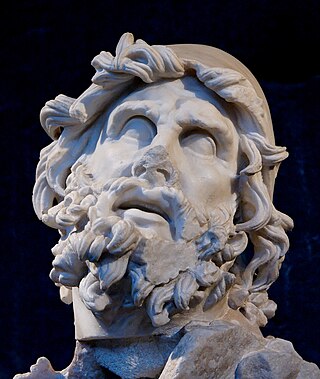
Odysseus, also known by the Latin variant Ulysses, is a legendary Greek king of Ithaca and the hero of Homer's epic poem the Odyssey. Odysseus also plays a key role in Homer's Iliad and other works in that same epic cycle.

Telemachus, in Greek mythology, is the son of Odysseus and Penelope, who is a central character in Homer's Odyssey. When Telemachus reached manhood, he visited Pylos and Sparta in search of his wandering father. On his return to Ithaca, he found that Odysseus had reached home before him.
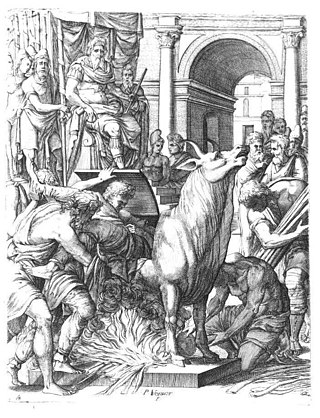
Phalaris was the tyrant of Akragas in Sicily, from approximately 570 to 554 BC.
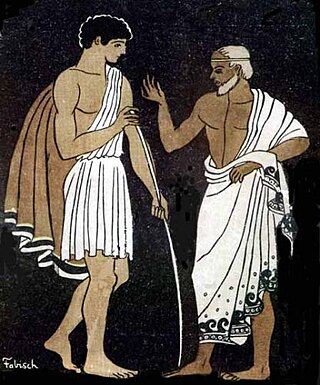
In the Odyssey, Mentor was the son of Alcimus. In his old age Mentor was a friend of Odysseus. When Odysseus left for the Trojan War, he placed Mentor in charge of his son Telemachus, and of Odysseus' palace.
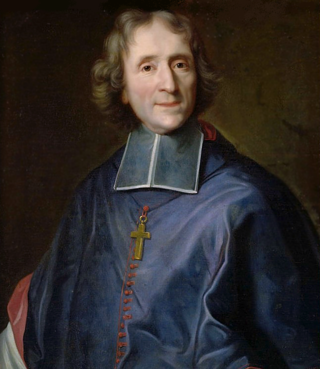
François de Salignac de la Mothe-Fénelon, more commonly known as François Fénelon, was a French Catholic archbishop, theologian, poet and writer. Today, he is remembered mostly as the author of The Adventures of Telemachus, first published in 1699.
Stephen Dedalus is James Joyce's literary alter ego, appearing as the protagonist and antihero of his first, semi-autobiographic novel of artistic existence A Portrait of the Artist as a Young Man (1916) and an important character in Joyce's 1922 novel Ulysses.
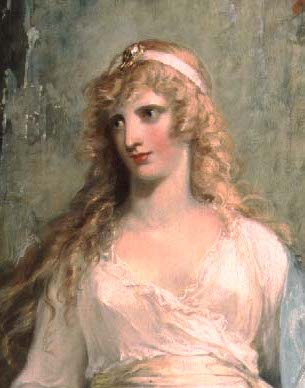
In Greek mythology, Calypso was a nymph who lived on the island of Ogygia, where, according to Homer's Odyssey, she detained Odysseus for seven years. She promised Odysseus immortality if he would stay with her, but Odysseus preferred to return home.
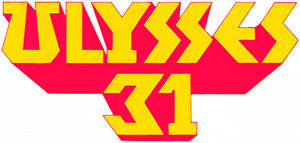
Ulysses 31 is an anime series (1981) that updates the Greek mythology of Odysseus to the 31st century. The show comprises 26 half-hour episodes as a co-production between DIC Audiovisuel and TMS Entertainment.
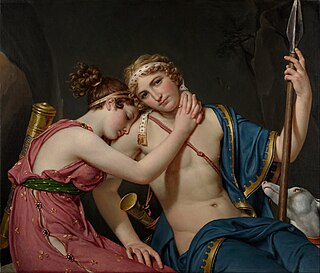
Eucharis, who does not appear in Greek mythology, was one of the nymph Calypso's attendants in Fénelon's novel Les Aventures de Télémaque (1699). In Fénelon's modern prose epic, an improvisation upon Homeric themes, Telemachus while searching for his father, Odysseus, has been shipwrecked on Ogygia, Calypso's island, and there has fallen in love with Eucharis but must leave her, dutifully to pursue his quest.
Nausicaa is a character in the Greek epic poem Odyssey.

The Odyssey is an eight-episodes European TV miniseries broadcast on RAI in 1968 and based on Homer's Odyssey. An Italian, Yugoslavian, German and French coproduction, it was directed by Franco Rossi, assisted by Piero Schivazappa and Mario Bava; the cast includes Bekim Fehmiu as Odysseus and Irene Papas as Penelope, Samson Burke as the Cyclops, as well as Barbara Bach as Nausicaa, and Gérard Herter. Several critics consider the series to be a masterful representation of the ancient world.

Les aventures de Télémaque, fils d'Ulysse is a didactic novel by François Fénelon, Archbishop of Cambrai, who in 1689 became tutor to the seven-year-old Duc de Bourgogne. It was published anonymously in 1699 and reissued in 1717 by his family. The slender plot fills out a gap in Homer's Odyssey, recounting the educational travels of Telemachus, son of Ulysses, accompanied by his tutor, Mentor, who is revealed early on in the story to be Minerva, goddess of wisdom, in disguise.

Télémaque et Calypso, also Télémaque or [French: ou] Calypso, is an opera by the French composer André Cardinal Destouches, first performed at the Académie Royale de Musique on 29 November 1714. It takes the form of a tragédie en musique in a prologue and five acts.
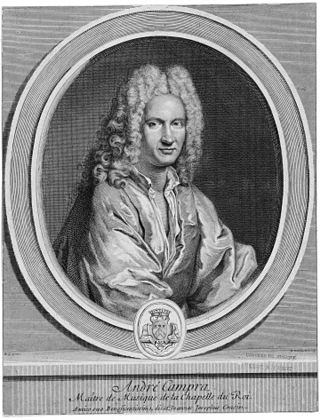
Télémaque, ou Les fragments des modernes is an opera by the French composer André Campra, first performed at the Académie Royale de Musique on 11 November 1704. It is a pastichetragédie en musique in a prologue and five acts with a libretto by Antoine Danchet.

The Farewell of Telemachus and Eucharis is a painting from 1818 by Jacques-Louis David, now in the J. Paul Getty Museum in Los Angeles, California. Painted during David's exile in Brussels, it was purchased by the Count von Schönborn-Wiesentheid. It depicts Telemachus and Eucharis, two characters in François Fénelon's 1699 novel Les Aventures de Télémaque, inspired by Homer's Odyssey. The artist's last painting of a couple from mythology, it is a pendant painting to his Love and Psyche.
Telemaque, the French name for the Greek mythological figure Telemachus, may refer to:












